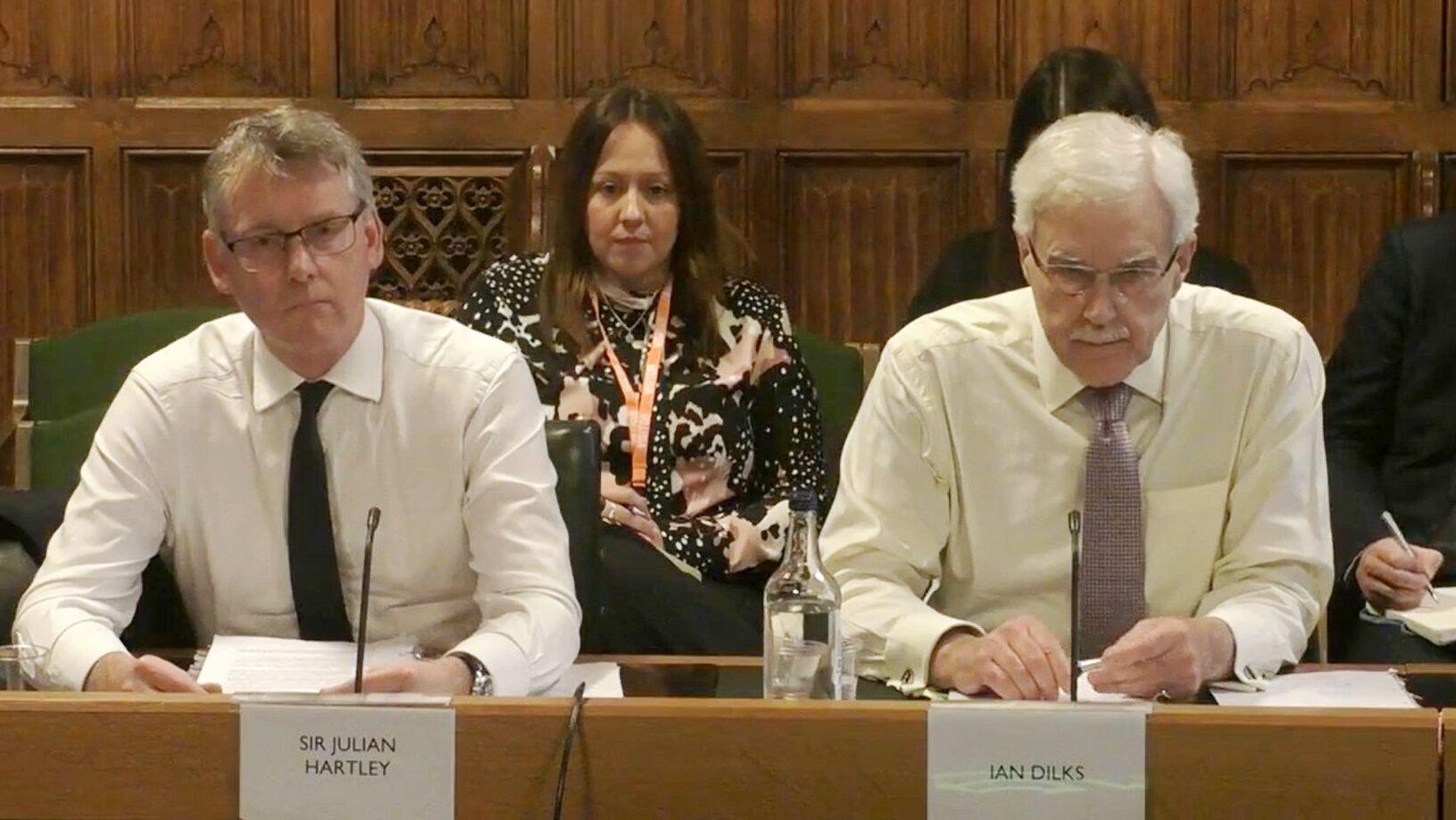How do we shift power to local communities in the NHS?
To make sure your voice is heard, MiP has joined an independent commission looking at how the devolution of health and care services to city regions might work.

MiP is joining forces with politicians and healthcare experts to take part in an independent investigation into the devolution of health and social care in England. The Health Devolution Commission, formally launched on 3 February, is chaired by Greater Manchester mayor Andy Burnham and will examine how power, control and accountability will function in new integrated health and social care systems.
The union’s chief executive, Jon Restell, has been appointed as an advisory commissioner to the inquiry, which began work in December. As well as Burnham, other members of the commission include former Conservative health secretary Stephen Dorrell; Norman Lamb, former Liberal Democrat social care minister; David Behan, chair of Health Education England; and representatives from healthcare think tanks, local councils and the voluntary sector. The commission’s work will be supported by the devolution consultancy DevoConnect.
The commission will focus on issues of power and control in the emerging structure of devolved health and care systems in England, drawing on the recent experiences of Greater Manchester, the West Midlands and London, as well as the devolved governments in Northern Ireland, Scotland and Wales, where integrated approaches are already well established.
The commission aims to contribute to policy making at national, city-region and local level by developing possible solutions to challenges facing politicians and managers in implementing integrated health and care budgets, joint commissioning, managing integrated teams and delivering more personalised services.
As a specific case study, the commission will also look at the impact of integration and devolution on cancer care services in different parts of the UK.
“There are really big questions to be answered about how devolved healthcare systems can be accountable both to local people and up through national NHS structure,” said Restell. “I’m really pleased to be asked to join in the work of this inquiry. NHS managers have a huge role to play in making integrated systems work and MiP will make sure their voices are heard loud and clear.”
National v local
One of the key questions the commission wants to address is the relationship between central government – the Department of Health and Social Care, HM Treasury and Number Ten – and NHS England. In what way is the secretary of state meaningfully accountable for the performance of local health and social care systems, especially as more power is devolved to local bodies under Integrated Care Systems (ICSs)?
The relationship between NHS England—both the central organisation and its regional directorates—and local STP/ICS partnerships is also increasingly unclear. As local systems acquire more autonomy and flexibilities, in what circumstances will NHS England be able to intervene?
The commission will also consider what changes will be needed in the inspection and regulation regime as local health and care systems become increasingly autonomous. If the role of central regulators like Monitor and the CQC is to be reduced, how will local inspection and regulation regimes be developed to take over their role?
It will also examine the evidence on whether a more visible and accountable political leadership at local level will allow the health and social care system to take ‘difficult’ decisions, such as merging services or closing hospitals.
The commission will draw on the lessons about power and control that can be learned from the experience of devolving and integrating health and social care in Scotland and Wales, as well as Northern Ireland—where the two services have been integrated for decades.
Getting to grips with devolution
The issues being discussed by the Health Devolution Commission were spelled out in the essay collection, Is devolution the future of health and social care?, published in June 2019. Here are some of the key issues for NHS managers:
- Engaging managers fully in the process and using their expertise, so they can become “agents of devolution”
- Embedding collaboration rather than competition as guiding philosophy of the health and care system—and how that shift is reflected in law
- Combining the civil and clinical leadership strcutures without giving rise to conflicting priorities and agendas
- ‘Blending’ NHS and local authority budgets across a geographical footprint
- Addressing NHS managers’ concerns about working in devolved systems and improving their career opportunities
- Avoiding a ‘postcode lottery’ in devolved health and care systems
- Fostering a collaborative spirit and managing integrated teams drawn from different services, professions and employers
- Developing a new role for large acute hospitals as ‘community anchors’
- Ensuring a strong patient voice in devolved systems
- Using outcomes from the vanguard areas as the evidence base for reforms
- Resolving the chronic underfunding of social care
Looking local
Health and care devolution will inevitably mean local government playing a bigger role in the NHS. But the nature of the relationship between local NHS leaders, on one hand, and local politicians and council officials on the other, remains unclear.
The commission wants to look at which decisions will be the responsibility of the NHS leadership and which will fall to local authority leaders, and what will happen when there is a conflict between the two. There is clearly a risk that lines of accountability between NHS bodies and local authorities could become blurred in an integrated health and social care system.
There are also key questions over money, particularly how budgets funded from national taxation for free universal healthcare will be combined with local authority budgets for means-tested social care. How will such ‘blended’ budgets managed and accounted for? The commission will also look at wider options for funding locally integrated systems.
A key question for MiP will be how NHS managers feel about being partly managed by locally-elected councillors, and what implications this will have for their careers and professional practice.
The commission will also examine how large acute hospitals can be made accountable within an integrated system and whether their future role as ‘anchor community organisations’ in local areas will make them more accountable and open to partnership working, or give them even greater influence and control over the whole system.
Patients and charities
Giving patients an effective voice within the NHS is a key aspect of the reforms and the commission will examine how integrated and devolved systems can empower individuals to have more control over their health and social care.
This includes looking at ways to give patients a voice at different levels of the health and care system, and the impact of new systems on the use of personal health and personal care budgets.
Another key question is the impact of a more integrated system on the charity sector, social enterprises and the independent sector as providers and partners in health and social care structures.
The commission will consider the evidence on how these groups are engaging in a collaborative way with the new Primary Care Networks, ICSs and Sustainability and Transformation partnerships, and how they are influencing local policies, procurement methods and decision making.
Updates on the work of the Health Devolution Commission will be published in Healthcare Manager and on the MiP website. If you would like to contribute to MiP’s work on the commission, contact MiP head office: info@miphealth.org.uk
Related News
-

The inspector falls: why the CQC needs a fresh start
After years of chaos, the Care Quality Commission urgently needs to rebuild trust and credibility with the public and the services it regulates. What needs to change and what are the priorities for new boss Sir Julian Hartley? Alison Moore reports.
-

Voice, value and vision: what analysts need from the NHS
Data analysts play a vital role in an NHS which is increasingly data-driven and focused on public health trends. But the NHS faces fierce competition for skilled analysts and many feel the health service fails to value them or fully use their talents. Alison Moore reports.
-

It ain’t what you do, it’s the way that you do it
The government’s upcoming ten year plan will try yet again to shift the NHS towards community, digital and prevention. The big question is how, writes Craig Ryan. Try honesty, patience, focusing on what matters and empowering staff and local managers—that’s what gets results.